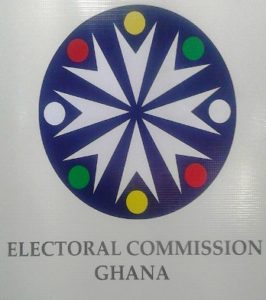Electoral guide for party candidates and agents launched
 The Electoral Commission (EC) has launched an electoral guide for political party candidates and their agents to help them understand the country’s electoral process ahead of the December 7 polls.
The Electoral Commission (EC) has launched an electoral guide for political party candidates and their agents to help them understand the country’s electoral process ahead of the December 7 polls.
The 28-page guide seeks to help potential party candidates and agents understand the nomination and balloting processes as part of efforts by the commission to enhance transparency and integrity in the 2016 elections.
The booklet also spells out responsibilities of candidates and electoral officials overseeing the conduct of the presidential and parliamentary elections that have garnered high level of local and international interests.
Mrs Charlotte Osei, the Chairperson of EC, said at the launch that “for a democratic political system to be truly representative, voters need an electoral process that is imbued with integrity
She said in order to guarantee integrity and build trust in the country’s electoral process, voters and election officials ought to perform their obligations in accordance with laws and policies.
“Ensuring integrity in the electoral process demands candidates, agents, voters and the electoral management body all conduct their activities in with laid down law and policies,” she said.
“Achieving a free, fair, credible and transparent election is not only the responsibility of the EC but of the candidates, their appointed agents as well as the general public”.
She expressed the hope that candidates and polling agents would play their roles well and in good faith to ensure that the country sails through a peaceful electoral process.
The guide, developed with the support of the United States Agency for International Development, is divided into four parts, with the first giving detailed information about political party candidates.
It explains issues such as who becomes a presidential or parliamentary candidate and collection, submission and processing of nomination forms as well as symbols of candidates and withdrawal of nomination in addition to terms of office of elected aspirants.
The second part describes polling agents and their qualities as well as roles in the electoral process.
The third part looks at general information about temporary election officers, polling station lists, determination of winners and official declaration of results as well as challenging validity of election and election offences.
The part four deals with the use of biometric technology in the electoral process which includes biometric verification registration, biometric and manual voter verification.
Source: GNA
